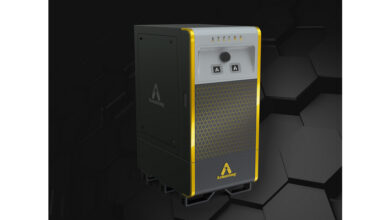The International Water, Sanitation and Hygiene Foundation is leading a project to deliver mobile wash stations to the Navajo Nation reservation, where more than 30% of residents — an estimated 52,000 people — live without access to running water.
With the COVID-19 pandemic having hit the Navajo Nation especially hard — more than 13,000 residents have now contracted the virus — the ability to wash one’s hands has never been more important.
Two prototype units were recently unveiled at the Milwaukee School of Engineering, where students Kathryn Ashley and Sarah Ceurvorst — both members of the American Society of Plumbing Engineers — are leading a range of testing and troubleshooting activities involving the school community and general public through the winter months. People using the stations are encouraged to complete a survey that may be accessed by scanning an accompanying QR code.
IWSH and DigDeep — a grassroots nonprofit working to expand running water on the Navajo Nation through its indigenous-led Navajo Water Project — collaborated to design the prototypes. Volunteers at UA Local 400 in Kaukauna, Wisconsin, assembled the stations, a 120 volt model and a solar-powered 12 volt model. The designs will be revised to incorporate findings from the on-campus testing, and the technical drawings and bill of materials will be finalized. IWSH will then lead a Wash Station Challenge in the spring, during which volunteers at UA locals throughout the United States will be invited to assemble 10-12 wash stations ready for delivery to the Navajo Nation in summer 2021.
For more information, visit iwsh.org.


